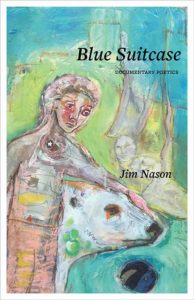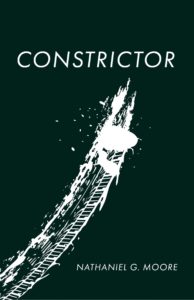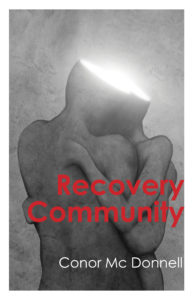b y Julie Booker
I’m five feet tall. I have a toy poodle. I drive a tiny car. I live in a row house. I teach small children. I’ve trained myself to see the world with a short arc, nicely contained. So it’s easy to see why I write short stories and devour short fiction. My list of favourite authors reads like some bizarre travel game. Aimee Bender, Amy Bloom, Amy Hempel. “I packed my suitcase and in it I put someone beginning with…” Anne Beattie, Anne Enright, Jayne Anne Phillips. There are a few masculine anomalies: Jonathan Goldstein, Tobias Wolff, John Gould. But it’s the women I gravitate toward, with their tight seamless structures, kickass endings. Better than any self-help book. I devour their complex plots like high-calorie desserts, feel them heal remote parts of my soul. I stare at the crumbs. How on earth did they do that? I can’t answer.
Isn’t that what you want? you might think. To be swept up? To be seduced by inconspicuously clever sentences? No. As a writer, I want to leave the story wiser, with a new trick or two. Their prose leaves no room for that. No work required.
I first stumbled upon Lisa Moore, and then, right on track with literary coincidences, Lorrie Moore. In Lisa Moore’s first collection of stories (Degrees of Nakedness, 1995), one moment you’re in bed with a character, the next you’re looking down from the ceiling. Her fragmented plots, her sparse poetic diction with nary an extraneous word, her compression of time, keep me in a constant state of engagement. Her similes pin me to the wall. Plot points play out like alternating hands of a seasoned drummer, slowly culminating in gestures too fast for the eye. So, too, in her second collection, Open (2002), Moore directs the reader: look here, now here, now here. It’s not a passive read with Lisa Moore. “The rain tears into the pavement like a racing pack of whippets. Claws scrabbling over the top of the cab. Livid grey muscles of rain” (from “Melody”). I work to orient myself in the story; breathing myself into the sentence fragments, the spaces. It’s terribly satisfying. In “If You’re There,” the protagonist lies on the floor at an Improv Contact class: “My first time, I whisper. Mine too. Our calves touch, we start like that. Her ankle looks stern, circumspect. Her ankle looks like the right-sized wrench grasping a bolt. This is a stranger’s ankle.”
When I discovered Grace Paley, I felt a similar sensibility. The Collected Stories (1994) gave me permission to tell the truth, the gritty courageous truth. “Just when I most needed important conversation, a sniff of the man-wide world, that is, at least one brainy companion who could translate my friendly language into his tongue of undying carnal love, I was forced to lounge in our neighbourhood park, surrounded by children” (from “Faith in a Tree”).
In Lorrie Moore’s Birds of America (1998), the sentences may be longer than Lisa’s, with wordplay and splashes of irony, but there is that kindred gift for the exacting simile. She, too, stirs the writer in my belly. “I tell them dance begins when a moment of hurt combines with a moment of boredom. I tell them it’s the body’s reaching, bringing air to itself. I tell them it’s the heart’s triumph, the victory speech of the feet, the refinement of animal lunge and flight, the purest metaphor of tribe and self. It’s life flipping death the bird. I make this stuff up” (from “Dance in America”).
Then along came Miranda July. Completing the Holy Trinity. Lisa, Lorrie and Miranda. In July’s 2007 collection, No One Belongs Here More Than You, with its imageless cover (simply canary yellow or hot pink, depending on the edition) and its Helvetica title, Miranda is the gal pal who notices stuff and isn’t afraid to say it. Hang out with her long enough and you start to see the world the same way. In “It Was Romance,” July writes: “We could smell each other’s shampoo and the laundry detergents we had chosen, and I smelled that she didn’t smoke but someone she loved did, and she could feel that I was large but not genetically, not permanently, just until I found my way again.”
Lisa, Lorrie, Miranda. Writers that make me remember how to write. Sensitive women who obviously experience the painful, exhausting reality of situations while they are unfolding. Not storytellers, but story dwellers. They know what it is to be without skin, and to trust their gut to write their way out.
In my primary school there was a tiny courtyard next to a high wall, with little space for any kind of rebound game, but on stormy days, before the rain hit, whatever leaves had not been swept up by the caretaker were lifted into a spiral of air, swirling round with candy-bar wrappers, the occasional crumpled paper bag. The precursor to a whopping storm. That’s what I feel when I read these ladies. A whisper of that eddy. I am placed in a state of grace—a limited state of grace—in which I need to move slowly, carefully, to the computer and begin to write.
Julie Booker’s collection of short stories, Up Up Up, is coming out with House of Anansi Press in the spring of 2011. She won First Prize in The Writer’s Union of Canada 2009 Short Prose Competition for Developing Writers and Third Prize in the Prism International Fiction Contest, 2009. Her writing has appeared in The New Quarterly, Descant, Prairie Fire, and Exile. The title story of her Anansi collection originally appeared in Particle and Wave, published by Mansfield Press in 2007.




























